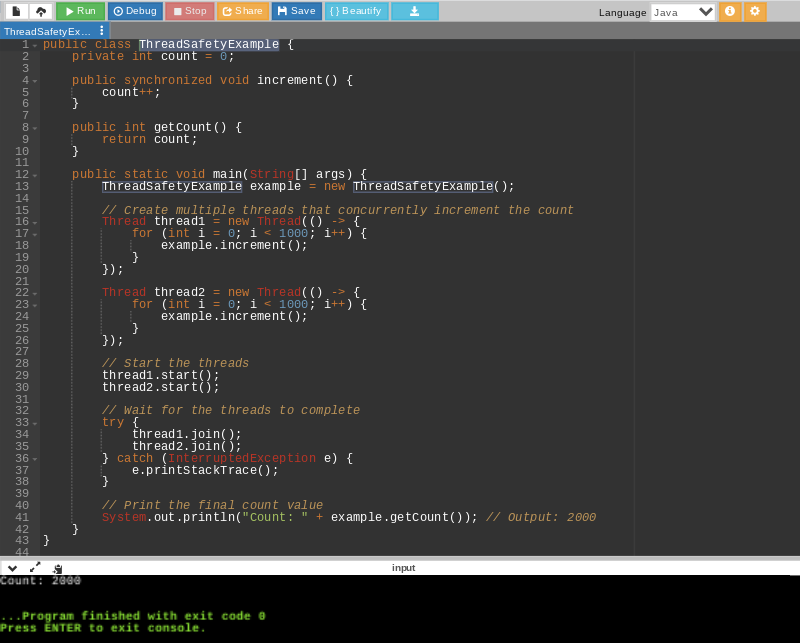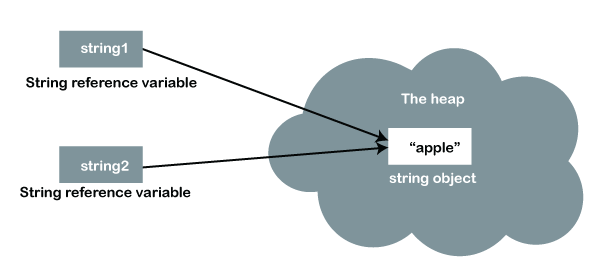Why Are Strings Immutable in Java? Comprehensive Guide for Beginners
Why Are Strings Immutable in Java? Comprehensive Guide for Beginners
Blog Article
The Development of Unalterable String Handling: A Crucial Facet of Software Development
In the elaborate realm of software application development, the handling of unalterable strings stands as a keystone that has actually undertaken considerable evolution gradually. From its simple origins to the complicated tests experienced in early implementations, the journey of unalterable string control has actually been a critical facet of software engineering. As we navigate via the historical landscape of this fundamental concept, tracing the innovations, safety and security implications, and emerging patterns, we locate ourselves at a time where the innate worth of understanding this development becomes increasingly evident.
Origins of Unalterable Strings
The principle of unalterable strings traces back to the very early days of shows languages when programmers sought to improve the integrity and safety and security of data managing mechanisms. Immutable strings refer to strings that can not be changed after they are created. This basic concept was introduced to address concerns pertaining to data integrity and protect against unplanned modifications to essential information kept as strings.

Furthermore, immutable strings contribute to enhancing the total safety and security of software program systems (Why are strings immutable in Java?). By stopping unauthorized parties from damaging delicate string data, immutable strings aid mitigate the threat of data violations and unapproved accessibility to confidential info. This fundamental principle remains to play a critical function in modern programming languages and continues to be a cornerstone of robust and safe and secure software development practices
Early Challenges and Solutions
One of the main obstacles in handling unalterable strings was handling memory effectively. Additionally, making sure that strings stayed unaltered confirmed to be intricate, especially when numerous parts of the codebase needed to gain access to and change information.
To attend to these obstacles, developers started applying data security strategies to safeguard delicate info saved in immutable strings. By including encryption and hashing methods right into the handling of immutable strings, developers considerably enhanced the safety and security and integrity of data within software systems.

Innovations in String Immutability
In software application development, a significant development in the handling of unalterable strings has actually arised via developments in data security and hashing methods. By utilizing protected hash algorithms like SHA-256 or cryptographic strategies such as AES encryption, developers can make certain that sensitive details stored in unalterable strings remains secure and tamper-proof. These innovations have strengthened the stability and discretion of data within applications, especially in industries where data safety and security is extremely important, such as click for source medical care, money, and cybersecurity.
Moreover, improvements in string immutability have led the way for enhanced performance optimization. Unalterable strings enable extra reliable memory management and caching methods, decreasing the expenses linked with frequent string adjustments (Why are strings immutable in Java?). This optimization not just improves the total responsiveness of software application applications however likewise adds to much better scalability and resource utilization
Safety And Security Implications and Best Practices
With the structure laid by advancements in string immutability, recognizing the safety and security ramifications and implementing ideal practices comes to be vital in securing sensitive data within software program applications. Immutable strings play a vital duty in enhancing protection by preventing unauthorized adjustments to information, ensuring data honesty throughout the application's lifecycle. By utilizing immutable strings, designers can alleviate typical vulnerabilities such as injection attacks, barrier overflows, and information meddling, which are frequently manipulated by destructive stars to compromise systems.
This consists of encrypting data at rest and in transit, carrying out appropriate gain access to controls, employing secure coding methods, and consistently upgrading software elements to patch recognized susceptabilities. By including these safety procedures and ideal techniques right into software development processes, companies can much better protect their information assets and decrease the threat of safety and security violations and information leaks.
Future Fads in String Handling
In the middle of the ever-evolving landscape of software program advancement, the trajectory of string handling is poised to witness considerable developments and technologies. One of the next page key future fads in string handling is the boosting focus on performance optimization. As software program applications remain to expand in complexity and range, the efficient handling of strings comes to be vital for preserving ideal performance. Designers are discovering new algorithms and data frameworks to enhance the rate and performance of string operations.
Additionally, one more trend coming up is the integration of expert system (AI) and artificial intelligence (ML) in string managing jobs. AI-powered tools are being created to automate and enhance various string control procedures, causing enhanced productivity and precision in software program advancement process.
Furthermore, there is an expanding focus on boosting the safety elements of string dealing with through progressed encryption techniques and safe coding techniques. As cyber threats remain to advance, guaranteeing the integrity and privacy of information within strings is becoming a top concern for designers. By taking on durable safety and security steps, such as encryption at rest and in transportation, developers can reduce the risks related to string manipulation susceptabilities.
Final Thought
Finally, the advancement of unalterable string handling has been an essential facet of software application advancement, beginning with its origins to the advancements made over the last few years. Early obstacles have been attended to through ingenious options, resulting in enhanced safety and security techniques in dealing with strings. It is necessary for designers to remain upgraded on the most recent trends in string immutability to guarantee the toughness and safety and security of their software application applications.
Unalterable strings refer to strings that can not be altered after they are created. Why are strings immutable in Java?. By preventing unapproved parties from meddling with delicate string information, immutable strings assist minimize the risk of information violations and unauthorized access to personal details. By including file encryption and hashing techniques into the handling of unalterable strings, developers substantially improved the security and additional hints reliability of data within software application systems
Immutable strings allow for much more reliable memory monitoring and caching approaches, reducing the overhead connected with regular string controls. Immutable strings play a critical duty in boosting safety by protecting against unapproved adjustments to information, making sure information stability throughout the application's lifecycle.
Report this page